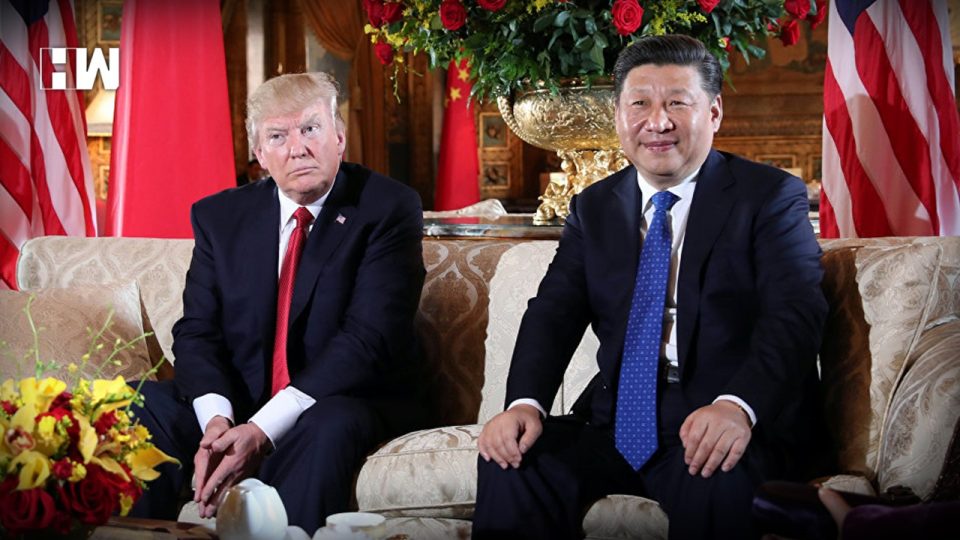Beijing | China and the US on Friday resumed their negotiations to end the trade war amid a bitter spat between them over Beijing’s trillion-dollar Belt and Road Initiative (BRI) projects which Washington said have national security element and less of an economic offer for host countries.
Top US and Chinese trade officials have been holding a series of talks to end the tariff war between the world’s two largest economies, kicked off by US President Donald Trump last year who demanding Beijing to reduce the USD 375 billion trade deficit, protection of intellectual property rights (IPR) technology transfer and more access to American goods in to China’s markets.
Trump has already increased the tariffs on over USD 250 billion Chinese exports to the US and threatened to extend it on USD 200 billion Chinese imports to 25 per cent.
He, however, held back his threat to impose additional tariffs on the rest of Chinese imports after Trump and Chinese President Xi Jinping agreed to a truce in December last year, during the G20 Summit in Argentina. The US and Chinese officials stepped up talks to finalise a deal.
On Friday, both sides resumed trade talks here, giving another push to their high-stakes negotiations to end their months-long tariff war.
Chinese Vice-Premier Liu He met US Trade Representative Robert Lighthizer and US Treasury Secretary Steven Mnuchin at the Diaoyutai State Guesthouse in the Chinese capital, after the two sides kick-started the talks over a working dinner on Thursday in a clear effort to speed up negotiations.
As the US delegation left their hotel earlier in the day, Mnuchin said they had a “very productive” working dinner on Thursday evening.
“A full day of intense negotiations has been scheduled on Friday to cover as much ground as possible. Issues identified included the protection of intellectual property rights, government subsidies for state-owned enterprises, trade barriers, market access and the US’ trade deficit with China,” the Hong Kong-based South China Morning Post reported.
White House Economic Adviser Larry Kudlow said on Thursday that the Trump administration was prepared to stretch the talks for “months” and Washington was in no rush to resolve the conflict.
“We are getting close, but we are not there yet,” Kudlow said.
As they resumed talks, both sides, however, traded charges over the BRI, President Xi’s signature initiative to fund infrastructure development abroad to expand China’s influence.
Chinese infrastructure and connectivity projects around the world have an element of “national security” and are less of an economic offer for host countries, US Secretary of State Mike Pompeo said as Beijing is gearing to host the second Belt and Road Forum.
Pompeo Thursday told a Washington audience that China poses a security threat to the US, its friends and allies.
“They are moving into the South China Sea is not because they want freedom of navigation. Their efforts to build ports around the world aren’t because they want to be good shipbuilders and stewards of waterways, but rather they have a state national security element to each and every one of them,” Pompeo said.
The Belt and Road Initiative is no different, he asserted.
Refuting the allegations, Chinese Foreign Ministry spokesman, Geng Shuang told a media briefing here that “for some time, it seems that some US politicians cannot go anywhere without attacking China, tarnishing China’s reputation, and sensationalising the so-called “China threat”.
“They frame China’s development assistance as a ‘debt trap’ and accuse Chinese enterprises of spying with trumped-up charges. These actions are extremely immoral and unfair,” he said.
“I want to stress that a lie, even repeated a thousand times, will still be a lie. Certain people in the US should not overestimate the effectiveness of their rumour-mongering or underestimate other people’s ability to make informed judgments,” he said.
He said, both Italy and Luxemburg have signed up to BRI which is backed 150 countries and international organisations.
Preparations are underway for the second Belt Road Forum (BRF) to be held here next month to highlight the achievements of BRI, he said.
India did not attend the first BRF held in 2017 and signalled to boycott the second BRF over its objections on the China-Pakistan Economic Corridor.
“To be honest, we have made no secret of our views and our position on BRI is clear and consistent and one that we have conveyed to the authorities concerned, India’s Ambassador to China Vikram Misri told the Chinese state-run daily Global Times recently.
“Above all, connectivity initiatives must be pursued in a manner that respects the sovereignty, equality and territorial integrity of nations. No country can participate in an initiative that ignores its core concerns on sovereignty and territorial integrity,” he said.
As an independent media platform, we do not take advertisements from governments and corporate houses. It is you, our readers, who have supported us on our journey to do honest and unbiased journalism. Please contribute, so that we can continue to do the same in future.

